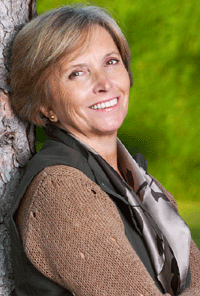 |
||
What is the menopause?Just what is the menopause? You probably throw the word around, without really thinking what it means. Forgotten your keys? It's the menopause. Feeling hot and flustered? The menopause strikes again. But what exactly is the menopause, and why does it have such a profound effect on your life? Strictly speaking, the word 'menopause' refers simply to a woman's last menstrual period. We commonly use the word though, to mean the whole of the time leading up to that last period, and even the time beyond it. There's nothing exact about the menopause, because when you have that final period you've no way of knowing it's the last one. Every woman's experience is different, so where some women's periods stop as abruptly as if someone threw a switch, others find that they decline gradually, with longer and longer gaps in between. What is the menopause? Stages It's not until you've been period-free for 12 months (24 months if you're under 50) that you can be certain that your "meno" has not just "paused", but ended. Of course, that also means that you are no longer fertile. Rather than asking 'what is the menopause?', it could be more helpful to look at what the menopause is NOT. The menopause isn't a disease, though because people often talk about the 'symptoms' rather than the signs of menopause, it can start to sound like one. But menopause is a natural stage in a woman's life, and for many it's a prolonged transition that takes place over many years. Although the word 'menopause' is used to describe the entire transition from start to finish, it's more accurate to talk about stages of the menopause.
What is the menopause? SignsYou'll probably notice slight differences in your menstrual cycle at first, and more signals will follow, including gradual weight gain, hot flashes (hot flushes) and others.How long does the menopause last?The whole transition can last as long as - wait for it - 20 years. That means you might be in one or other stage of menopause for around a quarter of your life.Age at menopauseThe lead-up to periods ending can start as early as your mid- to late thirties, although equally you might not notice anything different until your mid- to late forties. The menopause average age, when the last period occurs, is around 51, but some women carry on menstruating later into their fifties.Attitudes to the menopauseThe way you feel about the transition that's happening in your body (and in your mind) has a strong bearing on how well you'll handle the whole experience.- Are you like Jane, who summed up her rapid, late-forties menopause with a gloomy: 'What is the menopause? It's the end of everything - I'm on Mother Nature's scrap-heap now,'... - ...or maybe you're more of a Jean who cracked open the champagne on the day she knew she'd never have another period and toasted: 'No more PMT, periods, pads, towels or tampons, no contraception, no pregnancy scares - freedom!' - Perhaps you're in between those two extremes, celebrating one minute, lamenting the next? Fluctuating moods are part of the menopause, and it's very normal to feel fine about it one day, less good the next. Back to top of What is the Menopause? |
OUR FREE REPORT!
Get the Healthy Eating Habit and Lose Weight For Ever 
We hate spam and will never give away or sell your email address Facts about menopauseSisters, we are not alone! Information about menopauseThe menopause goes by other names: |
|
|
|
||
FEEL GOOD IN YOUR BODY!Beat-menopause-weight-gain.com does not offer medical advice. Please consult your physician before making any changes to your usual lifestyle.View our Terms of Use and Privacy Policy |
||
|
Beat Menopause Weight Gain - Feel Good in Your Body! - All Rights Reserved - Copyright© 2008-2012
| ||
 The menopause also occurs in other species that experience similar cycles - such as the pilot whale...
The menopause also occurs in other species that experience similar cycles - such as the pilot whale... 

